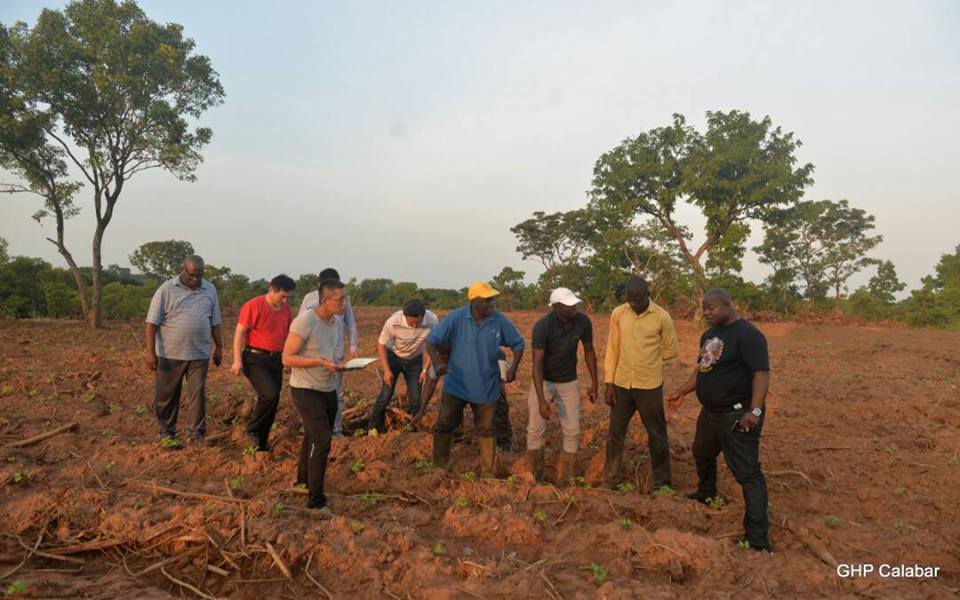By Our Correspondent
The Cross River State Government has announced that it will produce 30,000 tons of cotton by November as part of its backward integration policy to support industries such as the Garment factory already set up.
The cotton will be sourced from a farm situated in Woda community, Yala Local Government Area of northern Cross River, and is been operated in partnership with Arewa Cotton with 10,000 direct jobs to be created and others trained said the Anibe Achimugu, the managing director of Arewa Cotton.
“We will start by allocating parcels of land to the community farmers, train them and hope that they can now pass the knowledge to others,” Achimugu told newsmen on Thursday.
He continued: “The community members are already working with us in terms of the casual labor that we need. Also, we are collating the small holders’ farmers as out growers.
“The entire cotton value chain has the capacity to generate 10,000 jobs and a lot of that vistas of opportunity will come from Cross River State.”
Achimugu further informed that about 30 tons of cotton will be rolled out from the farm in November, a feat, he assured would be a gift to Governor Ayade. He said: “This is clearly in line with Governor Ayade’s backward integration policy and the only way to ensure the Calabar Garment Factory Factory operates at optimum capacity.”
Mr. Achimugu said the farm will be operated with the world best practices in agriculture as the team is led by an old staff of Institute of Agricultural research. He said they were attracted by the automated garment factory in the state, the complete value chain and the quick cash flow generation as well as the receptive nature of the people to investors.
Meanwhile, the Nigeria project manager of a Chinese firm, Ruyi Science and Technology group, Mr. Wu Xingtao, assured that his group found in Cross River State government a serious partner to do business with. He said they were determined to develop the state garment factory with required raw materials, hence the need for the partnership.
“We have plans to build textile factory in Nigeria, which means we need plenty cotton. We want to get plenty cotton from Nigeria and not to import so we are partnering with Cross River State government to make our textile factory easy,” Mr. Wu said.

The facilitator of the project, Mr. Gabriel Umodem affirmed the Chinese determination to deliver on the project. He said: “We saw their projection in Australia and Pakistan and that is what we want to repeat here. All of them don’t have the market that we have as the Nigerian market is too much. If you add that to the AGOA initiative, it means they come from China, produce in Nigeria and ship to America, so, Woda is going to be on the world map in terms of expansion.
“We promise that before the Carnival, a trailer load of a minimum of 30 tons of raw cotton will arrive the Calabar Garment Factory from our 2,000 hectares farm in Woda, Yala to show the world.
“Our technical partners are proposing a textile industrial park in Calabar that will produce 300 million meters capacity of fabrics per annum and the idea is that, they are overloaded back home, so, the Nigerian quota from their factory will come from Cross River.”
Furthermore he added: “We are not just doing cotton, we will gin, weave and intend to take over the garment factory and run it internationally.”
A former National Assembly member and leader of the community, Christopher Eriba said the community was in support of the project.
Mr. Eriba said: “If we have land to offer, that will be our little contribution towards the agricultural revolution. At a time like this, in order to cope with economic recession with a lot of young graduates who need skill acquisition, it is expected that going into this kind of venture will give them that leverage and training.
He added that “the community leaders, women and youths are happy, ready and in support of this project that will tremendously touch our lives. We pray that government should accomplish this laudable program.”
Since You Are Here, Support Good JournalismCrossRiverWatch was founded on the ideals of deploying tech tools to report in an ethical manner, news, views and analysis with a narrative that ensures transparency in governance, a good society and an accountable democracy. Everyone appreciates good journalism but it costs a lot of money. Nonetheless, it cannot be sacrificed on the altar of news commercialization. Consider making a modest contribution to support CrossRiverWatch's journalism of credibility and integrity in order to ensure that all have continuous free access to our noble endeavor. CLICK HERE |
New Feature: Don't miss any of our news again.Get all our articles in your facebook chat box.Click the Facebook Messenger Icon below to subscribe now
Text Advert by CRWatch :Place Yours

Will You To Learn How To Make Millions Of Naira Making Special Creams From Your Kitchen?.Click Here
Expose Your Business And Make More Sales. Advertise On CrossRiverWatch.com Today



Leave feedback about this